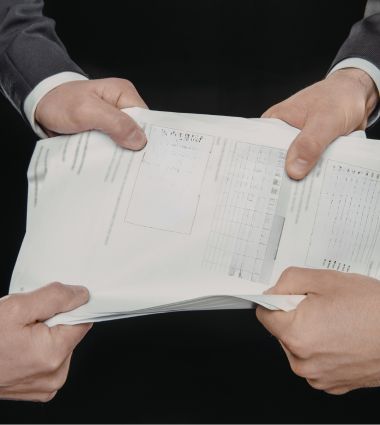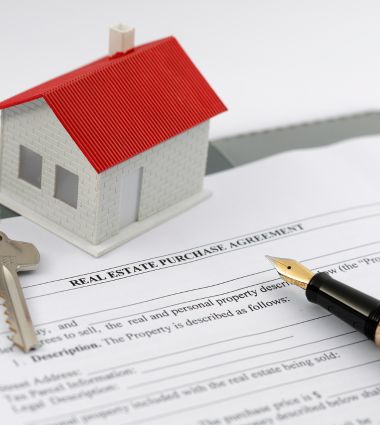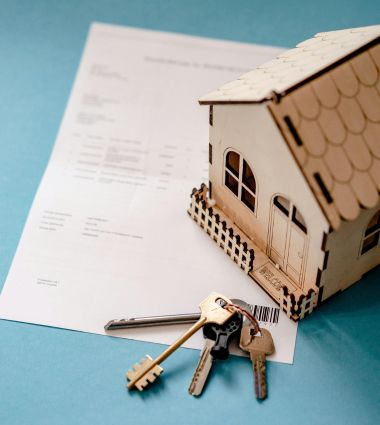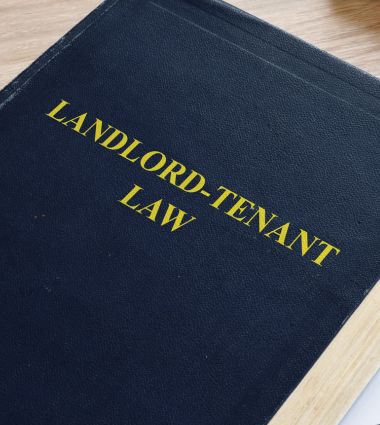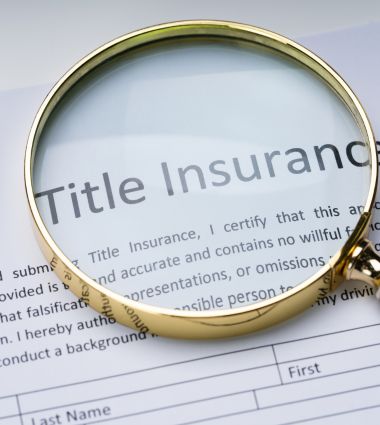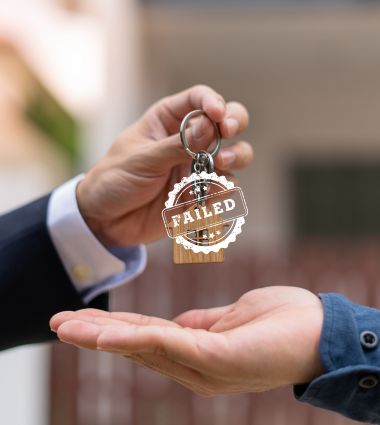How to Protect Yourself From Real Estate Title Fraud
You are at the closing for your new home purchase, pen in hand, ready to sign your name and accept the keys.
Before you sign the deal, pause and think!
Confirming that the title is legitimately in the seller's name protects you from real estate title fraud. Don't become the victim of a scheme to steal and sell your home.
Verify the title history, confirm the seller's identity, and review title insurance coverage before signing the real estate deal. Uncommon, title fraud still occurs across Canada. Don't let your real estate transaction put your finances and ownership rights at risk.
Protect yourself by learning about the tactics fraudsters use and the precautions to prevent them. This article explains important steps to take to protect yourself from real estate title fraud in Canada.
What Is Real Estate Title Fraud?
Real estate title fraud occurs when someone illegally transfers a property's ownership without the rightful owner's knowledge or consent. This crime involves forging documents and fraudulently recording ownership with the land titles office.
Fraudsters use different tactics like stealing personal information to impersonate the real owner. Once they gain control of the property's title, they can re-mortgage it, sell it, or rent it out - profiting from the illegal activities.
Common Schemes
The most common real estate title fraud schemes include:
- Forgery of quitclaim or transfer deeds to remove the true owner's name
- Identity theft to impersonate the owner and conduct fraudulent transactions
- Stealing titles from empty homes, properties of deceased owners, or "house-rich, cash-poor" seniors
Red Flags
While title fraud is hard to detect, some red flags can alert you:
- Receiving mortgage statements or legal notices about your property without initiation
- Finding unauthorized names added to your property's title records
- Unexpected tax bills or utility fee hikes for your property
Impact
Title fraud can severely affect victims financially and emotionally. Recovering legal ownership is difficult, lengthy, and sometimes may require court proceedings. Your credit can finish, and property may need to be sold to clear outstanding debts acquired because of fraudsters.
How Does Real Estate Title Fraud Happen in Canada?

Real estate title fraud in Canada usually occurs when someone fraudulently transfers ownership of a property or obtains a mortgage using stolen or forged documents.
But there are some other ways too:
Identity Theft Tactics
Real estate title fraud often starts with identity theft. Impersonators use different ways to obtain personal details like your name, address, date of birth, and other identifying information.
They may steal mail, gather data from social media or public records, or even go "dumpster diving" for dumped documents.
This allows them to imitate you - the homeowner - and take out mortgages or transfer your property title without your knowledge!
Targeting Vulnerable Homeowners
Fraudsters often target properties that are mortgage-free and owned outright.
This makes the scam easier since there is no lender to verify the transaction. Newcomers to Canada and elderly homeowners make excellent targets, as they are usually less familiar with real estate processes.
Forged Title Transfer
Once they have your identity, the fraudsters can forge documents to transfer your property's title to themselves or a partner.
They then take out a new mortgage on your home, pocket the money, and disappear - leaving you on the hook for the debt and eventually —- home loss.
Rental Scams
In some cases, fraudsters don't transfer the full title but instead list the home for rent that they don't actually own. Tenants unknowingly give their deposits and rent to someone who is not the real homeowner, then the real homeowner shows up to evict them.
The High Cost
The average real estate title fraud case in Canada costs victims around $300,000 in losses. This can devastate families, drain their life savings, and create legal nightmares to regain their property.
It is important to implement safeguards as soon as possible to protect your home from this costly crime.
Major Risks of Real Estate Title Fraud
Real estate title fraud presents several major risks that you need to be aware of. The consequences can be severe, impacting your finances, living situation, and honour.
Financial Losses
One of the biggest risks is the possibility of major financial losses. Fraudsters may mortgage or sell your property without your knowledge, leaving you on the hook for mortgage payments or losing your home altogether.
Recovering those losses through legal channels can be an uphill battle that can exhaust your resources.
Eviction from Your Own Home
In some cases of title fraud, the culprits may even go so far as to have you evicted from your own home. They'll claim ownership and attempt to remove you forcibly. The emotional and practical effects of suddenly becoming homeless cannot be imagined.
Damaged Credit Rating
Your honour is also at stake and could take a major hit as a result of real estate title fraud committed in your name.
This makes it harder to get loans, mortgages, credit cards, and even rent a new place in the future. Cleaning up the mess on your credit file is a lengthy and frustrating process.
Legal Battles
To regain control of your home and assets, you'll likely have to seek legal action against the fraudsters. This is time-consuming, expensive, and psychologically taxing as you try to understand the court system. Sometimes there is no guarantee of a positive outcome either.
As the value of real estate rises, criminals are increasingly targeting homeowners through different title fraud schemes.
Being proactive about protecting yourself from this threat by always taking legal help from a real estate lawyer is important to avoid potentially traumatic personal and financial losses.
5 Ways to Protect Yourself From Real Estate Title Fraud

Real estate title fraud can really have devastating effects, including costing you your home and life savings. To protect your property rights and financial interests, you need to take some protective measures.
Here are five effective ways to protect yourself from real estate title fraud:
Monitor Online Records Regularly
Always stay alert by frequently checking online land registry databases for any suspicious activity on your property title.
Many municipalities now offer online access to these records in Canada, allowing you to quickly identify any unauthorized changes or transfers. It will be helpful to set up alerts or reminders to review your property's status regularly.
Invest in Title Insurance
Title insurance provides an added layer of protection against title defects, including fraud. This insurance can help cover legal fees, court costs, and potential losses if someone challenges your ownership claim due to fraud or other risks. But, it is not a replacement for due diligence.
Keep a Watchful Eye on Your Credit
Fraudsters can attempt to obtain mortgages or loans using your identity, which can impact your credit score and history.
Regularly scan your credit reports from major credit departments for any suspicious activity, such as new accounts or inquiries you didn't start.
Consult Legal Professionals
Real estate transactions involve complex legal processes and documentation. Hiring reputable legal professionals, such as the best real estate lawyers Toronto or notaries, can help with proper verification and adherence to legal requirements, reducing the risk of fraud.
Protect Your Physical Mail
Fraudsters may attempt to block or redirect your mail to obtain sensitive information. Install a secure mailbox or use a post office box to minimize the risk of mail theft. Report any missing or suspicious mail to the appropriate authorities as soon as possible.
By implementing these proactive measures, you can significantly reduce your vulnerability to real estate title fraud and protect your property rights and financial well-being.
Stay alert, seek professional assistance when needed, and take immediate action if you suspect any fraudulent activity.
How Real Estate Lawyers Can Help Protect From Title Fraud
Real estate lawyers play an important role in protecting against title fraud. By conducting thorough title searches and assuring all transactions are legitimate, they help safeguard property owners from fraudulent claims and financial losses.
Understanding Complex Laws
Real estate title fraud involves complex legal issues and regulations that can be difficult to comprehend without professional expertise.
A real estate lawyer in Toronto deeply understands the complications of property laws, title transfers, and fraud prevention measures. They can guide you through the legal processes and requirements to protect your property rights effectively.
Proactive Fraud Detection
Toronto real estate lawyers are trained to identify potential red flags and suspicious activities that could indicate title fraud attempts.
They can conduct comprehensive title searches, review property records carefully, and identify any irregularities that may signal fraudulent activity. This approach helps catch title fraud early on, hence minimizing the potential damages that can come later on.
Recovering Financial Losses
Unfortunately, if you fall victim to title fraud, a real estate lawyer can help you recover any financial losses or damages done.
They can represent you in legal proceedings, negotiate with involved parties, and seek fair compensation or refund on your behalf. Their knowledge of property laws and legal procedures can greatly increase your chances of a result in your favour.
Reporting Suspicious Activities
Real estate lawyers can also advise you on the proper channels and procedures for reporting suspected title fraud to relevant authorities.
If you hire an expert real estate lawyer, you can be sure that your case will be appropriately handled, increasing the chance of the culprits being successfully investigated and prosecuted.
Preventative Measures
A real estate lawyer can recommend some preventive measures to safeguard your property from future title fraud attempts. This may include placing alerts or restrictions on your property's title, implementing additional security measures, or advising on best practices for managing and monitoring your property records.
By partnering up with a knowledgeable real estate lawyer, you can benefit from their expertise and protect yourself from real estate title fraud. Their guidance and representation can provide valuable protection for your property rights and financial interests.
To protect yourself from real estate title fraud, be alert in researching the history of any property you plan to buy. Confirm the seller is the true owner by requesting necessary documentation and running title searches.
Seek legal guidance to review contracts, and only work with licensed professionals. Perform a thorough analysis by obtaining title insurance and performing your own background checks.
Homebuying comes with its own set of risks, preparing by educating yourself, seeking expert guidance from a real estate lawyer, and taking precautions can help protect your interests when investing in real estate.
Last piece of advice: Stay informed, be thorough, and trust your instincts - with proper care, you can avoid becoming victim to fraudulent schemes that attempt to separate you from your hard-earned money or property that are increasing day by day. Protect yourself and your assets by being an educated buyer.
Real Estate
Family Law
Wills & Estates
Immigration
Join Our Mailing List.
Sign up with your email to receive our newsletter and stay informed about the latest legal developments and special offers.





